Prime Minister Pham Minh Chinh welcomed British businesses to attend the Dialogue - Photo: VGP/Nhat Bac
Also attending the Dialogue were the Ambassador Extraordinary and Plenipotentiary of the United Kingdom to Vietnam Ian Grant Frew and representatives of 25 British enterprises investing in Vietnam. On the Vietnamese side, there were representatives of leaders of relevant ministries, branches and agencies.
UK Ambassador to Vietnam Ian Grant Frew delivers opening remarks at the Dialogue - Photo: VGP/Nhat Bac
British Ambassador to Vietnam Iain Grant Frew: As we celebrate 15 years of strategic partnership, we are delighted to be here, leading a large business delegation, to engage with senior government leaders and discuss further directions for cooperation.
We will deepen this relationship to join forces to support Vietnam on its ambitious journey towards becoming a high-income country by 2045, a vision for a new era of development that Vietnam has set out in Resolutions 57, 59, 66 and 68 that is fully aligned with the UK’s strategic strengths.
Our businesses, with deep expertise from a knowledge-based and service-based economy , believe they are ideally positioned to accompany Vietnam's transformation.
British businesses bring their expertise and skills here, and believe that the contribution will be useful to Vietnam.
We highly appreciate the central role of the Prime Minister and the Government in creating a favorable business environment, promoting innovation, transparency and sustainable growth, especially in the context of Vietnam carrying out extensive reforms of the administrative apparatus at all levels.
Our conversation today is a valuable opportunity to hear directly from UK businesses in key areas such as finance, sustainability, digital transformation and skills training.
We expect that together we will find more effective ways of cooperation to open up new opportunities and further strengthen bilateral relations in these vital areas.
In the context of ever-changing globalisation, as British Ambassador, I would like to confirm that the UK has always been a trusted partner and strong supporter of free, open and fair trade.
This is evidenced by the fact that bilateral trade has more than doubled in the past 15 years. And we have passed the £8 billion mark with strong growth in key sectors such as healthcare, life sciences, financial services and education.
Our commitment to the international rules-based trading system is demonstrated by the UK-Vietnam Free Trade Agreement (UKVFTA) and our joint membership of the Comprehensive and Progressive Agreement for Trans-Pacific Partnership (CPTPP). With the strong support of Vietnam, we have become a member of the CPTPP. These are key frameworks that provide a solid foundation for deepening economic links and boosting bilateral growth. Across the world, the UK is also strengthening its trade and investment relationships, as evidenced by the agreements reached with the European Union, India and the United States in recent weeks.
Today, I want to share the commitment of the UK and our business sector to support Vietnam to realise its aspirations and ambitions of double-digit growth, building a modern, resilient economy to achieve high-income status by 2045.
Our priorities are, firstly, digital transformation, with UK businesses having deep expertise in technology, from FinTech to cyber security. Earlier this year, we hosted a delegation of leading AI companies to Vietnam and hosted the UK-Southeast Asia Tech Week. We also signed a memorandum of understanding with the Ho Chi Minh City Digital Transformation Centre, demonstrating our strong commitment to promoting technology cooperation between our two countries.
Second, on the green transition. UK businesses want to play a part in the transition to renewable energy and help Vietnam achieve its Net Zero target by 2050. Last week, we welcomed a delegation from the Ministry of Industry and Trade and Vietnamese energy agencies to share practical experience in offshore wind and renewable energy development. We look forward to, and are closely monitoring, the changes to Vietnam’s regulatory framework. The UK is also co-leading the $15.5 billion JETP programme to directly support these targets.
Third, science and technology. We have effective cooperation in the fields of medical research, artificial intelligence and the fourth industrial revolution. The foundation for these successes is our leading education sector, with effective cooperation models that we have seen from primary to university levels between the two countries.
Fourthly, finance. Since late 2022, the British government has been funding a project to support Vietnam’s ambition to build an international financial centre in Ho Chi Minh City and Da Nang. Yesterday, the Parliament approved this. The UK and British businesses will continue to support this initiative.
In all of these key areas, British businesses are making a significant contribution to Vietnam’s development. We welcome Vietnam’s commitment to continuously improving its business environment and attracting high-quality FDI, and look forward to working with Vietnam.
As we look to the future, together we look forward to continuing to support British businesses operating in Vietnam, and attracting new investors to Vietnam.
Present today are many representatives from the British Enterprise Consortium and the British Business Advisory Council, who are prominent representatives of the UK private sector. They will present an overview of the contributions of businesses in Vietnam as well as make recommendations on areas where we can further cooperate in finance, sustainable development, digitalisation, education and training, and bilateral trade cooperation.
The presentations will focus on the UK’s contribution to Vietnam, sharing our expertise. The UK is not simply investing in Vietnam’s economy, we are building a shared future together. Together we will continue to build a modern, resilient and 21st century partnership, contributing to an ever closer bilateral relationship.
Mr. Warrick A. Cleine MBE, Chairman of BCAC, Chairman and CEO of KPMG Vietnam and Cambodia - Photo: VGP/Nhat Bac
Mr. Warrick A. Cleine MBE, Chairman of BCAC, Chairman and CEO of KPMG Vietnam and Cambodia: I would like to speak about the initiatives related to the establishment of the International Finance Center, which we believe will significantly contribute to the country's economic growth and development. The Government's Resolution on the establishment of the International Finance Center is considered a strategic push and has the potential to help elevate the financial sector, including green finance, in Vietnam.
This will be a convergence of green finance, fintech innovation, capital market development and international trade with risk management always at the forefront. We are particularly pleased that the design of the International Finance Centre has incorporated contributions and professional advice from the UK financial community and we all work together to make it happen. We believe that this will be a driving force supporting the economy in Vietnam from the export sector, capital markets, energy transition to the pension and savings sector that is in great need of attention. Vietnam can continue to learn from London's valuable experience as a global international financial centre. For their part, UK financial enterprises such as HSBC, Central Charter Bank, Dragon Capital, Prudential are committed to continuing to promote their international spirit and deep attachment to accompany Vietnam.
In that spirit, we propose the following recommendations: First, we will continue to develop, apply and share international experiences and practices on legal aspects and then apply international financial reporting standards, including ISRAEL and corporate governance.
Second, we are keen to have your participation and you will facilitate the participation of existing financial institutions. In addition to attracting new players, the IFC needs to leverage the strong foundation of Vietnamese financial institutions and British businesses operating here.
We are experienced, highly regulated and have built a reputation in the finance and capital markets industry. We are also proud to be pioneers in recruiting and training thousands of Vietnamese investment professionals and arranging billions of dollars in investment. The International Finance Centre is an opportunity for UK businesses to improve, to play the role of pioneers and innovators in the market.
Third, we must ensure that the International Financial Center is inclusive. We welcome major policies in Vietnam such as Resolution 57 of the Politburo on science and technology, Resolutions 59 and 68 on developing the human economy, the international center will provide important mechanisms to accelerate and realize these policies and for the International Financial Center to develop, preferential policies must also be extended to the entire ecosystem.
Fourth, reforms need to be scaled up across the economy to boost GDP growth. The Government has acknowledged that certain reforms will generate growth. This could have similar effects across the economy. We recommend that the Government review proposed reforms to the International Financial Centre, particularly in the areas of work permit approval, personal income tax exemptions and facilitating domestic and foreign investors to participate in financial markets.
Mr. Douglas Matheson, Senior Director of Credit Risk Management and Compliance, HSBC Vietnam - Photo: VGP/Nhat Bac
Mr. Douglas Matheson, Senior Director of Credit Risk Management and Compliance, HSBC Vietnam: In the current turning point of Vietnam's development, we need to clearly recognize the role of sustainable development in shaping a prosperous, equitable and strong Vietnam. In which, economic growth, social security as well as environmental health are closely linked. And it is the responsibility of all of us to ensure that these pillars develop and support each other in harmony.
Vietnam demonstrated remarkable commitment and ambition for sustainable development at COP26. Vietnam announced its commitment to achieve net zero emissions by 2050, marking a significant step forward in the country’s global climate leadership, and the commitment of its ministries and sectors, underscoring the urgent need for comprehensive climate and sustainable development actions, which have been reinforced by recent policies and regulations. Vietnam’s National Green Growth Strategy 2021-2030, with a vision to 2050, is a clear demonstration of these efforts.
Recently, Vietnam has also issued the National Power Development Plan VIII, with a detailed implementation plan with ambitious goals for renewable energy. Moreover, Vietnam is a country vulnerable to the impacts of climate change. Rising sea levels, increasing frequency of extreme weather events, changing agricultural structures… are posing serious threats to the community.
Sustainable change means investing in resilient infrastructure, promoting renewable energy and implementing effective climate change adaptation strategies. This will protect people and economies from the negative impacts of climate change, while contributing to global efforts to reduce the causes of such problems.
To achieve its sustainable development ambitions, Vietnam needs to mobilize a huge amount of capital that the public sector alone cannot handle. Therefore, the private sector will be a key factor contributing to the success of the country's sustainability agenda. Meanwhile, the private sector, especially financial empires, still has its own commitments as sustainability risks have become an indispensable factor. Banks need to assess the risks of their customers and provide solutions to support them in mitigating risks and shifting to a more sustainable business model. The market has witnessed the emergence of many diverse sustainable financial products such as green loans, social bonds and sustainability-linked loans.
We can mention HSBC's sustainability improvement loan designed to increase access to sustainability-linked financial solutions for medium-sized enterprises, which are considered the "backbone" of the Vietnamese economy.
We believe that Vietnam’s Just Energy Transition Partnership (JETP) will begin to generate momentum for private capital following the success of the first JETP project for the public sector recently supported. Blended finance, when implemented properly, can also help mobilize capital at scale. In the above efforts, the deployment of sustainable finance, green credit still faces many challenges, such as the lack of a national green taxonomy, especially on what sustainability and green mean, as well as detailed regulations on green bonds and applications.
We welcome the Ministry of Agriculture and Environment's development of a draft for a green classification system. In the meantime, the banking industry is still heavily dependent on internal processes and criteria, leading to "suffocation" in the implementation of large-scale sustainable projects, requiring complex funding processes and quality monitoring. Disclosure of information on social environment and ESG governance is also a challenge. More than 90% of Vietnamese enterprises are small and medium-sized enterprises, but only listed companies are required to provide information on ESG strategies in their annual reports. Most of the information provided is general and not verified by a third party, except for a few leading countries. In addition, the establishment of a separate sustainability report and ESG report according to international standards is also encouraged but not yet mandatory. In addition, we can see that existing policies and mechanisms in green credit for the private economic sector are still limited. We expect this to change soon after Resolution 68 on private sector development, which mentions the development of green credit, the establishment of an interest rate support mechanism, and the encouragement of credit institutions to reduce interest rates for private enterprises implementing green projects, circular economy, and applying ESG standards. This is an important step in mobilizing green capital.
From the above-mentioned issues we have encountered in the implementation of sustainable finance, we recommend issuing regulations on green finance, frameworks and classification systems for priority green investment sectors in the future. Strengthening requirements for reporting and disclosing ESG information according to international standards. Building credit guarantee mechanisms or funds to support risk reduction for banks when financing green and sustainable projects. Having more incentive projects to encourage green credit.
In short, sustainable development is not a distant goal but an urgent requirement for Vietnam. Each of us, from the Government, businesses, financial institutions to the community and each individual, has a role to play in this journey. The Government’s commitment has created a strong framework for action. At HSBC, the transition to net zero emissions remains a top priority for our clients, and we are focused on helping them succeed. Whoever they are, we are enabling them to diversify their carbon footprint and invest in new business models.
Ms. Le Thi Hong Nhi, Deputy General Director of Communications, External Affairs and Sustainable Development, Unilever Vietnam - Photo: VGP/Nhat Bac
Ms. Le Thi Hong Nhi – Deputy General Director of Communications, Public Affairs and Sustainable Development, Unilever Vietnam: I would like to share some perspectives from BritCham’s ESG Working Group on three key topics in the journey of sustainable development. The first is plastic, the second is carbon, and the third is livelihoods for people.
Plastic waste is not only a challenge for Vietnam but also a global issue. However, Vietnam can be proud to be one of the pioneering countries in the region with many strong policies, such as the national action plan on marine plastic waste, the circular economy strategy, and especially the inclusion of the extended producer responsibility (EPR) mechanism in the Law on Environmental Protection in 2020. This is a very advanced policy.
On the business side, since 2020, Unilever has coordinated with the Ministry of Natural Resources and Environment to initiate and establish a public-private partnership to promote a circular economy in plastic waste management in Vietnam. To date, the alliance has more than 30 members, bringing together manufacturers, government agencies, research units, non-governmental organizations, collection and recycling businesses, and domestic startups.
By 2024, this collaboration has yielded encouraging results, with more than 30,000 tonnes of plastic waste collected, recycled and reused as Unilever packaging. Notably, in 2024, BritCham and Unilever, in collaboration with the Ministry of Agriculture and Environment, held the first ever "Plastic Circular Innovation Challenge", with very encouraging results: nearly 300 innovative ideas and solutions were submitted. We supported 5 winning ideas to bring them to market and into Unilever's supply chain.
To make this journey further and more sustainable, we have some recommendations for the Government:
Firstly, perfect and strengthen the EPR system towards focusing on promoting recycling and circular economy; promptly issue specific incentive mechanisms for the use of recycled plastics in packaging production.
Second, investing heavily in infrastructure and applying new technology in plastic collection and recycling. In particular, the first step of sorting waste at source to create clean raw materials for the recycling industry is very important and needs to be promoted.
On carbon, Vietnam has demonstrated a strong commitment to achieving net zero emissions by 2050, along with a green growth strategy. This is an extremely timely and correct direction. In 2024, BritCham collaborated with Unilever to organize a workshop for more than 150 suppliers on the Net Zero journey.
To realize these commitments, we have the following recommendations:
First, accelerate the development of the national carbon market and ensure compatibility and connectivity with international markets by 2029.
Second, consider integrating international certificates, such as the International Renewable Energy Certificate (I-REC), into the national emissions inventory system, to facilitate businesses to participate more deeply in the global value chain.
Regarding workers' livelihoods, an inseparable pillar in sustainable development is ensuring workers' livelihoods. The Government has had many policies to support the community's livelihoods, leaving no one behind.
On the British business side, through the program "Vietnamese Women Confidently Doing Business", from 2020 to now, Unilever has deployed in 32 provinces and cities, training the capacity and knowledge of more than 100,000 women on starting a business. Unilever also accompanies and supports nearly 5,000 scrap collectors, mainly women, through the provision of protective equipment and insurance packages.
We see that the Government is also paying special attention to the development of the private economy. To spread these values more widely, we respectfully hope that the Government will continue to pay attention to and create favorable conditions for small and medium enterprises, especially individual business households and small traders; issue clear guidelines on new policies such as taxes and access to microfinance, helping them maintain their livelihoods, expand their businesses and contribute positively to the overall development of the country.
The British Business Council is extremely proud to be a partner with Vietnam in sustainable development. We believe that with the strong leadership of the Government and the joint efforts of the business community, together we will create a green, prosperous future and contribute to bringing Vietnam to the world.
Ms. Dang Thi Mai Trang, Chief Representative of the Institute of Chartered Accountants in England and Wales (ICAEW) Vietnam - Photo: VGP/Nhat Bac
Ms. Dang Thi Mai Trang, Chief Representative of the Chartered Accountants of England and Wales (ICAEW) Vietnam : The UK education system is proud not only of its long history but also of its important role in meeting the demands of today's learning market as well as the future demands of organizations and the economy.
In Vietnam, through the fields of English language training, general education, higher education, vocational education has been gradually developed. The British Government is proud of its work and support for the expectations and needs of the Vietnamese education sector to achieve its set goals.
Firstly, in the field of English, through the British Council and many prestigious British organizations, we wish to support the Politburo's Conclusion 91-KL/TW in 2024 on making English the second language in Vietnam. This not only meets the needs of the younger generation but also the current human resources.
Second, in general education, the traditional one-way teaching method is still popular, making students not well prepared for the international learning environment or future career, which requires not only knowledge but also creative thinking. British educational organizations and curricula have been supporting public and private schools in Vietnam to improve and enhance the quality of the national education program.
This curriculum reform and skills will be future-ready, aligned with global standards and trends.
Third, we welcome the transfer of vocational training to the Ministry of Education and Training. This is an opportunity for the Government to build a comprehensive education system for everyone, regardless of position or educational level. However, the current vocational training system is limited in capacity, not linked to the needs of businesses, and does not create opportunities for lifelong learning or transfer to higher education. The credit transfer mechanism between vocational training and university training is still unclear. This is limiting flexibility and opportunities for many students.
We therefore look forward to and fully support upgrading vocational training programmes with flexible international cooperation mechanisms, applying the credit transfer system and expanding learning models based on practical work experience. This will create a world-class workforce, contributing to the realisation of the growth targets set out in the Resolution of the 13th National Party Congress.
Fourth, for universities, we have seen that they have been faced with balancing academic rigor with the development of practical skills. A number of global professional career programmes from English-language institutions have been integrated into the accounting and finance curriculum in recent years, addressing this challenge to some extent. We hope that this model will continue to be replicated in other new disciplines.
In addition, quality assurance is not always consistent and clear, especially in research and student exchange, which is still limited. Some training units also have difficulty in complying with and interpreting the provisions of Circular No. 07 issued by the Ministry of Education and Training recently. We look forward to further consultations and detailed guidance so that educational institutions can implement the requirements of this Circular. We believe that this can have a great impact in helping to deepen cooperation with world-class universities. All higher education programs should aim for international standards such as the UK qualifications standards through the UK Higher Education Quality Assurance Agency to ensure the highest quality, while building global partnerships to improve the effectiveness of research on learning outcomes and enhance the reputation and rankings of universities in Vietnam.
Fifth, in the field of science, technology, research and innovation, UK universities are world leaders. We are always looking for breakthrough mechanisms to establish a partnership perspective with the Government and private organizations in Vietnam to support Vietnam's digital transformation and science and technology innovation in the spirit of Resolution 57.
Another bright spot from the association’s members is the increasing number of university students from the UK studying in Vietnam, demonstrating their desire to experience the culture and dynamism of a business environment in a country in a region that plays an important role in the global economic and political future. This also contributes to the realization of Vietnam becoming an international education hub with transnational education programs. The UK’s international education program will contribute to this expectation and we believe that strong support from the Government will facilitate the development of these educational models.
I will always support educational institutions, students and businesses, contribute my part in Vietnam's exciting development period as well as promote the partnership and investment between the two countries even in the context of global uncertainties.
Mr. Atul Tandon, General Director of AstraZeneca - Photo: VGP/Nhat Bac
Mr. Atul Tandon, CEO of AstraZeneca: I welcome Vietnam's issuance of Resolution 57 on breakthroughs in science, technology, innovation and national digital transformation. This is an important foundation in building and developing a high-quality healthcare system.
AstraZeneca is a partner in Vietnam’s ecosystem, acting as a catalyst for capacity building, promoting local manufacturing, and clinical research activities. We are one of the leading foreign-invested enterprises in technology transfer for essential pharmaceuticals. We have invested over US$70 million in clinical trials since 2008, working with 50 hospitals across the country to expand access to advanced therapeutics.
Vietnam currently accounts for nearly 2% of AstraZeneca’s global clinical trial population and we are continuing to increase our Phase 2 clinical trials in Vietnam. We have recently completed a highly successful in-situ formulation trial for one product and aim to commercially manufacture four products in Vietnam in 2027-2029.
Vietnam is leading the way in universal health coverage with over 93% coverage, setting new standards in the effort to control the growing burden of infectious and non-communicable diseases.
AstraZeneca is committed to working together and being a strong partner to develop sustainable healthcare solutions, especially for rapidly growing diseases like cancer.
We have set ourselves a mission to bring breakthrough scientific solutions as well as join hands to improve the medical capacity of the Vietnamese healthcare system. Thereby, accelerating the transformation process towards a sustainable future for our people, society and our planet.
Vietnam is one of AstraZeneca’s first global partners in promoting health equity. We are proud to partner with the People’s Committee of Bac Ninh Province and support the local government in building a smart healthcare city. This is an initiative to turn Bac Ninh into a leading digital healthcare hub, contributing to global solutions and international partnerships that promote digital innovation across the entire healthcare system from screening, diagnosis to referral. In addition, AstraZeneca also cooperates with the Vietnam Young Physicians Association to promote disease screening based on digital technology and artificial intelligence, thereby supporting more than 350,000 people in the past 2 years.
Recognizing the close connection between human health and planetary health, AstraZeneca has been promoting the AZ Forest initiative in Vietnam and has made encouraging progress in Hoa Binh province.
On this occasion, AstraZeneca thanks the Vietnamese Government for its openness, decisive action and recent achievements in simplifying administrative procedures, promoting the amendment of the Pharmacy Law, expanding the payment mechanism of the national health insurance system to support innovation. AstraZeneca is committed to always being a strategic partner, a long-term companion and a strong supporter of Vietnam's aspirations and ambitions for a healthy and prosperous country.
Ms. Huynh Thi Thanh Truc, Director of External Relations of Diageo Vietnam - Photo: VGP/Nhat Bac
Ms. Huynh Thi Thanh Truc, Director of External Relations, Diageo Vietnam : As the representative of Diageo in Vietnam, the UK's leading enterprise in the alcoholic beverage sector, we are always committed to putting social responsibility at the heart of all activities.
We believe that one of the key factors to building a healthy and sustainable society is educating and raising public awareness about the responsible use of alcohol.
In Vietnam, the wine and spirits industry has proactively coordinated to implement many useful educational activities, typically the "Don't drink and drive" campaign, contributing to spreading the message of traffic safety to millions of people, especially young people.
We sincerely thank the Prime Minister for showing understanding and accompanying businesses, especially in deciding to postpone the increase in special consumption tax to January 1, 2027 and apply a more reasonable tax increase. This is a step demonstrating strategic vision, creating conditions for businesses to adapt and develop in the context of Vietnam facing many risks in international trade.
Today, in the spirit of constructive cooperation, we look forward to proposing to the Prime Minister a balanced and educational approach to the management of the alcoholic beverage industry.
Rather than focusing solely on administrative measures such as tax increases or advertising restrictions, we recommend prioritizing educational solutions to change behavior, which have been shown to have a more far-reaching and sustainable impact.
This approach is based on three main pillars.
The first is education instead of prohibition. We should invest in education, community education programs, especially aimed at teenagers and young consumers, to raise awareness of the harmful effects of uncontrolled, harmful alcohol use. This is an approach that has been effectively applied in many developed countries around the world.
Second is the responsibility of the manufacturer. We are willing to participate in the process of developing and complying with the codes of ethics guided by the Ministry of Health, in which consumer education is mandatory. Businesses need to have a responsibility to work alongside the Government in disseminating scientific knowledge about the effects of alcoholic beverages.
Third is public-private partnership in education. We hope to work with ministries, especially the Ministry of Health, to develop communication, training, school and community programs to fundamentally change public awareness and behavior.
Education combined with appropriate policies will be the key to protecting public health while ensuring the stable development of economic sectors such as trade, tourism and manufacturing.
We hope to receive the support and direction of the Prime Minister as well as the close coordination of relevant ministries and branches to effectively implement the education-based cooperation model for a comprehensively developed, prosperous, safe and sustainable Vietnam.
Mr. Matt Ryland, Executive Director of the British Chamber of Commerce (BritCham) in Vietnam - Photo: VGP/Nhat Bac
Mr. Matt Ryland, Executive Director of the British Chamber of Commerce (BritCham) in Vietnam : The trade and investment relationship between the UK and Northern Ireland in Vietnam is growing strongly. This relationship is strengthened through bilateral trade agreements. Most recently, the UK joined the CPTPP Agreement. In 2024, the total value of trade between the two countries reached more than 8 billion pounds, Vietnam exported goods worth 6.8 billion pounds to the UK, while the UK's export turnover to Vietnam increased to 1.3 billion pounds. UK investment in Vietnam currently reaches 1.3 billion pounds and will continue to increase in many areas such as energy, healthcare, and finance. These figures not only reflect the strength of the trade relationship but also demonstrate the UK's long-term trust in Vietnam as a dynamic economy and a strategic partner in the global supply chain. There are currently just over 400 British businesses operating in Vietnam, including long-standing companies such as HSBC and Unilever as well as small and medium-sized enterprises.
While the direction of the relationship is very positive, we also recognise that there are practical steps that both sides can continue to take together to make it even more effective. UK businesses have raised some concerns regarding customs procedures in Hai Phong and Cat Lai. There is still a lack of consistency in clearance processes and challenges in the classification of goods. Introducing risk-based inspections and ensuring clearer classification of goods at key ports could help reduce barriers and improve the flow of goods in the trade sector.
The implementation of e-invoicing is still not uniform, creating certain difficulties. In addition, mutual recognition of electronic documents and digital costs can support smoother paperless trade. Legal and administrative procedures are also a challenge. Similarly, foreign SMEs face unclear procedures and long processing times when applying for business licenses or work permits.
We believe that with greater transparency, streamlined procedures and consistency across regions, the UK-Vietnam trade relationship can reach new heights, and together we will strengthen this vital relationship.
Mr. Nitin Kapoor MBE, member of BritCham's Board of Directors, Vice President of the Vietnam Business Forum (VBF) Alliance, Vice President of Regional and International, AstraZeneca Group's Biopharmaceuticals Sector, Chairman of AstraZeneca Vietnam - Photo: VGP/Nhat Bac
Mr. Nitin Kapoor MBE, Member of BritCham Board of Directors, Vice President of Vietnam Business Forum (VBF), Vice President of Regional and International, Biopharmaceuticals, AstraZeneca Group, Chairman of AstraZeneca Vietnam : I would like to conclude the speech of the British business community.
Our partnership has been strong and continues to be stronger despite the challenging international environment. We will continue to be your long-term partner in supporting our shared ambitions for innovation, sustainable development and inclusive growth. We encourage the bold initiatives we have shared, which position Vietnam as a regional financial hub, globally connected and future-ready. We welcome and appreciate the Prime Minister and the Government’s commitment to the ambitions related to green finance and NetZero, increasing private capital and building frameworks with clear ESG standards, robust tools, inclusive financial mechanisms, especially for SMEs, which are considered the “backbone” of the economy in the energy sector.
We thank the Ministry of Industry and Trade and welcome the negotiations of the Joint Trade Committee led by Deputy Minister Nguyen Hoang Long in the fields of trade, education, health... We see great opportunities for cooperation, especially in artificial intelligence in healthcare and towards digital transformation activities.
As we look forward to the 50th anniversary of diplomatic relations, let us look forward to the next 50 years, in which we continue to share our common beliefs, ambitions and cooperation. We have heard about the importance of sectors, which will help us promote the development of many industries including financial services, healthcare. We have heard about the need to modernize the regulations on loan management and importantly, international standards for carbon markets and issues of intellectual property protection for many industries participating in Vietnam.
Let us create a prosperous future together, side by side as valued and valued partners.
Deputy Minister of Finance Nguyen Thi Bich Ngoc discussed and answered some recommendations of British businesses at the Dialogue - Photo: VGP/Nhat Bac
Deputy Minister of Finance Nguyen Thi Bich Ngoc: We have recently listened to the opinions of the business community and noted three groups of issues related to the responsibility of the Ministry of Finance. The first is about the international financial center in Vietnam; the second is tax policies related to sustainable development, ESG, carbon markets, and green trade standards; the third is related to customs procedures.
Regarding the International Finance Center, first of all, we would like to thank the Ambassador, together with the British Government, for their recent support to the Vietnamese Government and agencies, including the Ministry of Finance, in developing the project to establish the International Finance Center in Vietnam.
Accordingly, we will aim to develop a financial center to mobilize international resources to develop three very important pillars, which are green economy, digital economy, and innovation. In the coming time, we will continue to develop international financial centers in Ho Chi Minh City and Da Nang. We will still maintain conventional financial products, and besides that, we will promote financial products such as green, ESG, and others.
Yesterday, the National Assembly issued a Resolution on the development of an international financial center in Vietnam. In the coming time, implementing the direction of the Politburo and the Government, relevant ministries, departments and branches will continue to develop 8 decrees to guide implementation. These contents are very important, and we look forward to the continued support of the British Government and the business community in developing mechanisms and policies.
Regarding the specific opinions of enterprises regarding long-term incentives, the draft Resolution has provisions on corporate income tax and personal income tax incentives to develop voluntary pension funds and other funds. In the process of developing upcoming decrees, the Ministry of Finance will continue to review and recommend competent authorities to consider and amend tax policies in accordance with the tax reform strategy until 2030 and international practices. In particular, in the context of developing a financial center, we will develop tax policies that ensure competitiveness with the region, but we also do not want to become a "tax haven" to attract financial institutions. This is a difficult task and we look forward to your cooperation.
All international financial centres are very careful not to create a “tax haven” to attract financial institutions to their country. We do the same.
Regarding the application of international standards, this is a guiding principle when we build and develop a financial center. That is to apply international standards on IFRS, Basel, and ESG. We look forward to cooperating with the British business community in the future.
Regarding incentives for the entire ecosystem, we take note of this opinion. In addition to incentive mechanisms to attract financial institutions, we will try to harmonize to develop the accompanying ecosystem, including law firms, consultants, and auditors. We will implement this content in the decrees.
Regarding the suggestion that the financial center policy should not be limited to Ho Chi Minh City or Da Nang but should be applied widely throughout Vietnam, we would like to discuss it again. In fact, a clearly defined legal framework is a prerequisite. For an emerging market and financial center like Vietnam, we need specific locations to apply a transparent legal framework that is consistent with international practices. It is very difficult to apply it widely nationwide at the present time. However, we also understand that a mechanism must be established so that capital flows into the financial center can flow to the rest of Vietnam. We take note of this content.
Regarding the ESG criteria, we do not yet have a specific ESG standard for Vietnam. Currently, ESG factors are integrated into the Vietnamese legal system, for example in the provisions of the law on environmental protection and regulations related to tax incentives.
Regarding the carbon market, the Prime Minister has recently approved the project to establish a carbon market. Accordingly, we will try to form this market and make it connected, synchronized, and apply international standards so that Vietnam's carbon market can be linked with markets around the world. Through that, we can coordinate carbon credits and exchange between markets.
Customs procedures for Vietnam's import and export goods are being implemented uniformly and cleared automatically based on risk handling on the system at 100% of customs units, with more than 99.9% of enterprises participating. Electronic processing of customs documents has met about 99.8%.
We agree with the business community that although we have worked on the system, it has been a long time since it was built. Currently, implementing the direction of the Government and the Prime Minister, the Ministry of Finance is urgently upgrading the customs information technology system to ensure smoothness and minimize incidents. We will continue to deploy more effective risk management methods to reduce time for investors and increase clarity in the classification of goods.
In the coming time, we will continue to closely coordinate with relevant ministries and branches to recognize electronic records, documents and signatures, promote digital and paperless trade. Regarding this content, we will continue to propose that the Ministry of Finance, the Government, the Prime Minister, and the Minister of Finance have strongly directed the two branches of Tax and Customs to promote the application of information technology, mutual recognition between agencies within Vietnam, to reduce procedures and compliance time for businesses. We accept, acknowledge and will implement.
Deputy Minister of Foreign Affairs Le Thi Thu Hang - Photo: VGP/Nhat Bac
Deputy Minister of Foreign Affairs Le Thi Thu Hang : Using documents through consular procedures is the process of certifying the legality of documents and papers issued by a competent authority of a country so that they can be recognized and used in another country. This procedure includes two main steps: consular certification and consular legalization.
In Vietnam, we are implementing Decree 111/2011/ND-CP. The use of documents in one country and in another country must comply with the provisions of this Decree.
In implementing the simplification of procedures, the Ministry of Foreign Affairs will amend the above Decree in July to synchronously implement the two-level government in localities.
Deputy Minister of Industry and Trade Nguyen Hoang Long - Photo: VGP/Nhat Bac
Deputy Minister of Industry and Trade Nguyen Hoang Long : Regarding the field of the Ministry of Industry and Trade related to British enterprises, there are 2 areas:
In terms of trade, it can be said that Vietnam - UK trade relations have developed very rapidly in recent times. The UK and Vietnam have a bilateral free trade agreement UKVFTA, and then the UK's participation in the CPTPP Agreement has also created a great impetus to promote two-way trade between the two countries. In 2024, two-way trade between Vietnam and the UK reached a record of 8 billion pounds. Of which, Vietnam exported about 6.7 billion pounds to the UK and Vietnam imported 1.3 billion pounds from the UK.
In particular, the UK is an important partner of Vietnam in the service sector. The UK is currently the largest service exporter to Vietnam with a total value of more than 40 billion pounds in 2024. In the coming time, with the establishment of Vietnam's international financial center, the UK's service exports to Vietnam will certainly increase many times. The Ministry of Industry and Trade believes that trade between the two countries will continue to grow in the coming time despite the global economic difficulties.
Regarding the issues raised by British businesses regarding the commitment to eliminate the economic needs assessment (ENT) procedure in the retail sector. The Comprehensive and Progressive Agreement for Trans-Pacific Partnership (CPTPP) and the Vietnam - EU Free Trade Agreement (EVFTA) both commit to eliminating the ENT economic needs test requirement after 5 years from the date the Agreement comes into effect. Thus, British businesses registering to invest in Vietnam under the framework of the UKVFTA will have to comply with this agreement. The elimination of the ENT requirement will take effect from August 1, 2025, foreign investors are exempted from conducting an ENT assessment when opening a retail outlet in addition to the first retail outlet in Vietnam. As for British businesses registering to invest in Vietnam under the CPTPP, the elimination of the ENT requirement will take effect from January 14, 2024.
An important area in the cooperation between the two countries is energy, especially renewable energy. Vietnam has committed to Net Zero by 2050, so in recent times, Vietnam has introduced many breakthrough policies, especially in the field of renewable energy development. Recently, the Prime Minister issued the Power Plan VIII to adjust Vietnam's energy development, in which priority is given to renewable energy development.
In the renewable energy development plan, the development of offshore wind power according to the revised Power Plan VIII stands out. By 2030, Vietnam will have 6,000 MW of wind power, and by 2035, it will be 17,500 MW.
It can be said that in the offshore wind power sector, the UK is a leading country, the offshore wind power market as well as the UK supply chain are the strongest in Europe and internationally. Therefore, in the cooperation between the UK and Vietnam on offshore wind power, there are 5 issues being discussed including: Capital, technology, training, management and institutions.
Regarding the UK's commitment to support Vietnam within the framework of the Just Energy Transition Partnership (JETP), the Ministry of Industry and Trade has been working with the UK Government and recently the UK Ministry of Finance has also reaffirmed its commitment to a capital source of 1 billion USD to support Vietnam within the JETP.
Regarding training, the Ministry of Industry and Trade proposed that the UK continue to promote the Ministry of Industry and Trade's offshore wind power training center and energy sectors in Vietnam. This will be one of the important policy centers to promote offshore wind power in Vietnam, contributing to perfecting the mechanism and policies to promote the offshore wind power industry as well as renewable energy in general in Vietnam.
Regarding offshore wind power technology, the UK is a leader, so the cooperation between the two countries is of great significance in technology transfer and transformation. The Ministry of Industry and Trade hopes that the UK and Vietnam will continue to cooperate, including cooperation with UK university chains.
Regarding capital, the establishment of an international financial center with policy-based capital sources is also one of the measures to attract capital into the energy sector, especially offshore wind power, a sector that requires very large initial capital (about 60-70 billion USD).
A very good news that the Ministry of Industry and Trade would like to report to the Prime Minister as well as British businesses, for the 17,500 MW of offshore wind power capacity in 2035, after Resolution 68 was issued, many corporations and private economic groups in Vietnam have submitted registrations to start implementation. The Ministry of Industry and Trade expects that by the end of this year, Vietnam's first offshore wind power project will begin implementation. We look forward to the UK continuing to cooperate closely to develop with Vietnam in the field of offshore wind power.
As the Prime Minister stated at the recent ASEAN Summit, Vietnam aims to become an energy center exporting green electricity to countries in the region in the context that Vietnam is very naturally favored to form offshore wind power. Therefore, this is also a potential area for economic and trade cooperation between Vietnam and the UK as well as between Vietnam and other countries in the world.
He has a lot of experience in both developing the market, perfecting institutions, and creating industrial zones and energy centers to attract investors. The second strength of the UK is the London Financial Center, where there are very large investment funds. Each offshore wind power project is an investment project, an investment fund. When implementing an offshore wind power project, investors will usually set up a separate investment fund for that project. It can be seen that the speed of offshore wind power development in the UK is extremely large and is also one of the successful lessons we can learn and cooperate with.
Deputy Minister of Science and Technology Pham Duc Long - Photo: VGP/Nhat Bac
Deputy Minister of Science and Technology Pham Duc Long : The Ministry of Science and Technology highly appreciates the recommendations, contributions and proposals of British enterprises. We appreciate the cooperation of British enterprises in the field of digital transformation, green transformation, especially the cooperation with the Digital Transformation Center of Ho Chi Minh City.
Regarding the opinions of British businesses related to digital transformation, the Ministry of Science and Technology would like to discuss as follows:
First, digital signature. The Law on Electronic Transactions was passed in 2023. In July 2024, we issued a Circular regulating the recognition of foreign electronic signature certification service providers in Vietnam; recognition of foreign electronic signatures and electronic signature certificates in Vietnam.
This Circular applies to foreign electronic signature certification service providers requesting recognition in Vietnam; foreign organizations and individuals, Vietnamese organizations and individuals who need to conduct electronic transactions with foreign organizations and individuals whose electronic signatures and electronic signature certificates of domestic service providers have not been recognized in that country; organizations and individuals related to the recognition of foreign electronic signature certification service providers in Vietnam; recognition of foreign electronic signatures and foreign electronic signature certificates in Vietnam. We request you to study this and, if you have any difficulties or problems, report them to the Ministry of Science and Technology so that we can consider making appropriate adjustments.
Second, regarding the classification of goods. The National Assembly recently passed the Law amending and supplementing a number of articles of the Law on Product and Goods Quality. Accordingly, products and goods are classified based on the level of risk, in accordance with international practices; warnings from relevant international organizations regarding products and goods; and the management capacity of state agencies in each period.
Products and goods are divided into the following three categories: Low-risk products and goods; Medium-risk products and goods; High-risk products and goods.
Products and goods with low risk levels must have their applicable standards self-declared by organizations and individuals.
Products and goods with an average risk level must be self-declared by organizations and individuals to comply with applicable standards; must be self-assessed or certified by an accredited certification organization to comply with corresponding national technical regulations according to the provisions of law on standards and technical regulations.
Products and goods with high risk levels must be self-declared by organizations and individuals to comply with applicable standards and certified by designated certification organizations to comply with corresponding national technical regulations in accordance with the provisions of law on standards and technical regulations;
Products and goods with medium and high risk levels must be managed according to a list associated with corresponding quality management requirements, which clearly identifies products and goods that are subject to other management measures according to regulations of relevant laws.
In the coming time, ministries and branches will develop and issue lists of products and goods according to risk levels. If you have any difficulties or problems, please report them to the agencies so that we can resolve them appropriately.
Within the framework of today's conference, we also propose that British businesses coordinate with the Ministry of Science and Technology to consider implementing the following contents:
The first is about technology development. The Prime Minister of Vietnam has just issued a list of strategic technologies and strategic technology products. Many of these technologies are owned by British enterprises, such as microbiological technology, vaccines, AI, robotic technology, etc. We hope to have cooperation between British enterprises and Vietnamese enterprises to develop Vietnam's strategic technologies. These are the issues we want and are also one of the strengths of British enterprises.
Second, we would like to share experiences and effective models in promoting and developing science and technology, policy frameworks, legal frameworks and intellectual property valuation. These are areas in which the UK has a lot of experience. Recently, the National Assembly passed the Law on Science, Technology and Innovation, which includes many open policies for science, technology, innovation and intellectual property. We look forward to having UK businesses join us in this field.
One more thing, we really hope that British businesses will share and join us in the content related to digital technology application. This is one of the issues that we are very interested in in the coming time.
The Vietnamese Politburo has issued Resolution 57, an important content of which is the assessment of digital capacity and digital transformation. We do not have much experience in this. We are starting to develop indicators to assess access to international practices. Therefore, we really hope that the UK and British businesses will join us.
Deputy Governor of the State Bank of Vietnam Nguyen Ngoc Canh - Photo: VGP/Nhat Bac
Deputy Governor of the State Bank of Vietnam Nguyen Ngoc Canh : Regarding the UK's recommendations related to the development of Vietnam's financial center, the State Bank of Vietnam has recently worked actively with its partner HSBC.
Regarding orientation, banking policies and foreign exchange activities in the Vietnamese financial center are built in the direction of absorbing international experiences and considering to ensure a suitable roadmap for Vietnam. The State Bank of Vietnam fully agrees with the proposal to increase the presence of British banks contributing to the process of building the Vietnamese financial center in the draft Resolution and draft Decree on licensing foreign investors' foreign exchange management banking activities.
I also suggest that, through the British Business Council, British businesses participate more actively in developing Vietnam's financial center. We always believe that the experience of British financial institutions will be of practical significance in developing Vietnam's economy.
Regarding the second content on green economy and circular economy, we are also implementing many solutions such as issuing circulars guiding environmental risk management for credit activities. We also always prioritize green sectors from agriculture. We are also finalizing the action plan to implement Resolution 68 on private economic development, effectively implementing it in the coming time to mobilize credit into this economic sector, especially small and medium enterprises, applying the ESG standard framework. We also acknowledge the positive contributions of British enterprises that have accompanied us in attracting green policy capital for Vietnam.
The third content is that there are currently two British banks present in Vietnam as 100% foreign-owned banks, including HSBC and Standard Chartered Bank, both of which operate stably, actively and especially support the pioneering role in green credit in Vietnam. HSBC committed to arranging 12 billion USD by 2030 to directly and indirectly finance projects in Vietnam. By the end of 2024, 18% of the capital had been arranged. The UK, the European Union and Canada have committed to providing initial support of 7.75 billion USD to support the Vietnamese Government. We look forward to these commitments being fully implemented in the coming time.
Deputy Minister of Agriculture and Environment Hoang Trung - Photo: VGP/Nhat Bac
Deputy Minister of Agriculture and Environment Hoang Trung : After listening to the opinions of businesses and the entire conference, I think we need to focus on the following main issues: One is related to the commitment to reduce plastic waste (from changing consumption habits to increasing recycling and waste treatment). Second is the mechanism. Third is carbon management.
Regarding plastic waste reduction, on December 4, 2019, the Prime Minister issued Decision No. 1746/QD-TTg on the National Action Plan on Ocean Plastic Waste Management to 2030. This plan includes specific goals and solutions to reduce plastic waste in the sea and ocean, towards a sustainable future.
Recently, the Ministry of Agriculture and Environment has cooperated with about 30 enterprises to manage plastic waste. At the same time, we also organized conferences to discuss the collection and recycling of plastic waste. This cooperation aims to reduce environmental pollution caused by plastic waste. Enterprises have participated in activities such as collecting, recycling, and treating plastic waste. Initial results have been good.
Regarding the expansion of plastic waste treatment plants under the Extended Producer Responsibility (EPR) mechanism. This is a suitable policy, aiming at the circular economy. EPR helps transfer the responsibility of plastic waste management from consumers to manufacturers, encouraging them to design environmentally friendly products and recycle, reducing waste and pollution.
Following the Prime Minister's direction, the Ministry of Agriculture and Environment is drafting a decree on this issue, including consulting businesses, organizing workshops to develop a mechanism from collection to recycling and completing infrastructure.
Specifically, this draft decree focuses on perfecting the mechanism for managing, collecting, transporting, treating and recycling waste, aiming to build a synchronous and effective infrastructure system.
It is expected that this July, we will submit it to the Ministry of Justice, and in September, we will submit it to the Government for promulgation. From now until then, we hope to continue to receive comments from the business community so that this Decree becomes practical, substantive and effective.
The Ministry of Agriculture and Environment is actively implementing activities related to carbon market development, with the main goal of building a transparent and effective carbon market in Vietnam. The 2025-2028 period will be a pilot phase, after which the market will officially operate in 2029, according to Decision 232 of the Prime Minister.
The Ministry of Agriculture and Environment has submitted to the Government Decree 119 on the basis of Decision 232 of the Prime Minister, focusing on regulations on the carbon quota and credit market. Specifically, this decree stipulates the subjects of participation, types of goods (including greenhouse gas emission quotas and carbon credits), and the system of registration and management of carbon quotas and credits.
In addition, the Prime Minister has also assigned the Ministry of Finance to develop a decree on domestic carbon trading floors. The Ministry of Agriculture and Environment will continue to coordinate with the Ministry of Finance.
Another thing is that many countries have now signed agreements to invest in reducing greenhouse gas emissions. Regarding this, the Ministry has reported to the Government to develop a related decree in October 2025.
Deputy Minister of Education and Training Le Tan Dung - Photo: VGP/Nhat Bac
Deputy Minister of Education and Training Le Tan Dung : Currently, the UK's investment in education and training in Vietnam has reached 185 schools, including 130 universities and 55 colleges. There are 200,000 Vietnamese students currently studying in the UK.
Recently, between the Ministry of Education and Training of Vietnam and the UK, there have been activities such as exchanging scholarships, creating conditions for Vietnamese students to study abroad,... The two sides have had plans and memorandums of cooperation.
Regarding specific opinions on the field of education and training in Vietnam, I would like to discuss as follows:
Firstly, the Ministry of Education and Training has submitted to the Prime Minister the Project "Making English the Second Language in Schools for the 2025-2035 Period, with a Vision to 2045". The Ministry of Education and Training welcomes international organizations and foreign educational enterprises to cooperate with Vietnamese educational institutions and partners in English training and teaching. At the same time, it encourages British enterprises to cooperate and support Vietnam through projects and training programs, improving the quality of English teaching; digital transformation, technology transfer in English teaching.
Regarding vocational education (VET), currently VET (vocational training) is under the management of the Ministry of Education and Training. We request the UK to support the promotion of cooperation between UK enterprises and vocational training institutions according to the cooperation model between the State, Schools, Enterprises, etc. At the same time, we also hope that the UK will share its experience in building models linking vocational education with enterprises, digital transformation in vocational training. At the same time, we request that British enterprises provide technical support to enterprises and employers and wish to share their experience in forecasting vocational training needs, especially in science - engineering - technology fields.
Third, in terms of higher education, the UK has a lot of experience in developing higher education as well as master's and doctoral degrees. Regarding Circular 07/2025/TT-BGDDT on regulations on training cooperation between Vietnamese higher education institutions and foreign higher education institutions at master's and doctoral levels, we would like to consult. The Ministry of Education and Training looks forward to welcoming the delegation to work at the Ministry of Education and Training to provide information and guidance on the implementation of this Circular.
In the coming time, the Ministry of Education and Training proposes that the Ministry of Education and UK agencies continue to review the regulations on cooperation and association. Regarding Vietnam's legal documents, we will review them and handle any shortcomings appropriately.
Second, we also propose that UK organizations and businesses continue to review 7 plans and programs, especially 7 important memorandums of understanding dated October 3, 1999 between the Vietnamese National Assembly and the UK.
The Ministry of Education and Training hopes that British schools and educational institutions will support and share British experience in building and developing training programs at all levels of higher education; support Vietnam in enhancing digital transformation in education towards cooperation in building digital universities; actively cooperate in research development projects and improving the quality of higher education; connect businesses and schools in English training; support accreditation and ranking of Vietnamese universities.
Deputy Minister of Home Affairs Nguyen Manh Khuong - Photo: VGP/Nhat Bac
Deputy Minister of Home Affairs Nguyen Manh Khuong : Currently, regulations on foreigners working in Vietnam are stipulated in Decree No. 152 and then amended and supplemented in Decree 70. According to the content of these decrees, there are still many cumbersome procedures that do not ensure reform. Implementing the direction of the Government and the Prime Minister, the Ministry of Home Affairs is researching and completing the draft decree to replace these two decrees, expected to be submitted to the Government next July.
Accordingly, there are some major adjustments as follows:
Regarding the reduction of time for handling administrative procedures, the draft Decree will implement the Prime Minister's Official Dispatch No. 22 on a number of key tasks and solutions to enhance competitiveness, improve the investment and business environment and promote socio-economic development, including the requirement to reduce at least 30% of the time for handling administrative procedures, reduce at least 30% of business costs, and abolish 30% of unnecessary business conditions.
At the same time, the draft Decree is also amended to integrate the procedures for reporting and explaining the need to use foreign labor into the same application for a work permit. According to this plan, the time for receiving and processing work permit procedures will be shortened from 36 days to 10 days.
Regarding the concretization of Resolution No. 57 of the National Assembly for experts in the fields of science, technology and innovation, previously, according to Decree 152 and Decree 70, regulations on experts required a university degree or equivalent and at least 3 years of experience in the trained field. However, to attract these subjects, we have amended the decree in a very innovative and open direction. Specifically:
Supplementing cases that only require a university degree with a major in finance, science and technology, innovation from a number of countries and fields that Vietnam prioritizes development, no experience is required.
Supplementing cases that are not eligible for work permits for a number of experts in specific fields such as finance, science and technology, innovation, digital transformation, etc.
In addition, the draft Decree stipulates in the direction of opening additional special cases decided by the Government upon the request of ministries and branches.
Regarding the promotion of the application of information technology in the management and implementation of procedures for granting work permits to foreigners working in Vietnam, to grant work permits to foreigners working in Vietnam via the electronic network, the Ministry of Home Affairs has recently connected with national databases on residents, businesses, and foreign citizens in Vietnam. We have also linked procedures for granting permits, issuing tax books, and issuing health insurance cards to shorten the time and create convenience.
Regarding the approval of application files for licenses, implementing the direction of the Government and the Prime Minister, and also with the consensus from the central to local levels in the spirit of standing on the side of enterprises, we have regulated the issuance of work permits in the direction of decentralization and delegation of authority in state management.
Thus, starting from July 1, 2025, agencies, organizations and enterprises will apply for licenses locally. The Ministry of Home Affairs will direct the timely dissemination and implementation of procedures related to licensing and confirmation in the most convenient and best way for enterprises, foreign workers and experts.
Permanent Deputy Minister of Culture, Sports and Tourism Le Hai Binh - Photo: VGP/Nhat Bac
Permanent Deputy Minister of Culture, Sports and Tourism Le Hai Binh : Regarding potential cooperation with the UK in the fields of culture and tourism. In 2024, there were 306,191 British visitors to Vietnam (up 21%) and continued to increase by 19.1% in the first months of this year. Therefore, the potential for cooperation in tourism is still very large as Vietnamese visitors to the UK are increasing and Vietnam Airlines has opened more flight frequencies. The visa issue has also been and is being handled by the Ministry of Foreign Affairs.
In the field of sports, especially football, the British Embassy recently successfully organized a friendly match between Manchester United and Vietnam All-Stars. This event is not only a simple exchange activity but also a driving force to promote tourism and enhance people-to-people exchanges. British football clubs such as Manchester United, Liverpool, Manchester City and Chelsea have great appeal to Vietnamese fans. The Ministry of Culture, Sports and Tourism hopes that British businesses will continue to have deeper cooperation in the field of sports to help raise the level of Vietnamese football as well as other sports.
Deputy Minister of Health Nguyen Tri Thuc - Photo: VGP/Nhat Bac
Deputy Minister of Health Nguyen Tri Thuc : Regarding medical cooperation, in recent times, pharmaceutical companies as well as British universities have cooperated very well with Vietnam. In particular, AstraZeneca is a very famous company in the world, having conducted many randomized clinical trials to contribute to creating new products for the Vietnamese and world markets, especially products related to endocrine, diabetes, cardiovascular and cancer.
In recent times, with the strong direction of the Prime Minister and the Government, and the National Assembly's approval of the Law on Pharmacy (amended), the Law on Health Insurance (amended) and the Law on Bidding (amended), almost all obstacles have been resolved to serve the activities of pharmaceutical companies and enterprises.
In the coming time, the Ministry of Health hopes to receive support from British medical universities in training and exchanging students and lecturers, in accordance with international standards.
The Ministry of Health also hopes that AstraZeneca will continue to cooperate with Vietnam and the Ministry of Health will be ready to support all conditions to participate in clinical trials in Vietnam, develop pharmaceutical industries, vaccine technology, and transfer vaccine production technology in Vietnam under the direction of the Prime Minister.
In addition, the Ministry of Health also hopes to receive support from AstraZeneca as well as the British Government in training on digital health and especially green health to reduce carbon emissions from medical waste and medical products.
The Ministry of Health also hopes that AstraZeneca will support AI programs to enhance early diagnosis of cancer and stroke patients.
Deputy Minister of Public Security Le Quoc Hung - Photo: VGP/Nhat Bac
Deputy Minister of Public Security Le Quoc Hung : Firstly, businesses require transparency in cross-border advertising and control of content on digital platforms of the Advertising Law, which is not within the scope of the Ministry of Public Security. We suggest that the Ministry of Culture, Sports and Tourism discuss further with the British business community investing in Vietnam.
The second issue is to comment on some provisions on data processing and personal data protection, clarify data classification and classification criteria, verify the relationship between the Data Law and the Personal Data Protection Law, simplify cross-border data transfer procedures, adjust the provisions on data deletion within 72 hours to be more flexible, and reconsider the administrative fines that are considered too heavy for large enterprises but too light for small enterprises.
We would like to respond as follows: Regarding the review of the current administrative fine, which is considered too severe. We find that the fine of 1-5% of revenue is built on the basis of careful research both domestically and internationally. According to countries such as the United States, Singapore, and Indonesia, the fine is 5% of revenue. We find that the construction of the fine of 1-5% of revenue in the Personal Data Law is reasonable.
Regarding the clarification of data classification and data classification criteria, the Data Law clearly stipulates the concepts, we suggest you study further. We identify important data related to national defense and security, if leaked or disseminated, will cause very serious consequences, so strict sanctions are needed. We will specify the list of core important data for more clarity.
The regulation on deleting data within 72 hours is also specifically regulated in the Law. Data deletion is carried out within 72 hours after the request of the data subject and the results of processing and retrieval must be notified. I find these regulations very clear, I suggest you study more in the Law.
Regarding the simplification of cross-border data transfer procedures to maintain competitiveness, it is expected that Vietnam will require mandatory risk assessment when transferring cross-border data with important data related to national security, national interests, public interests, etc.
Regarding the relationship between the Data Law and the Personal Data Protection Law, on November 30, 2024, the Data Law was passed by the 15th National Assembly and took effect from July 1, 2015. On June 26, 2015, the Personal Data Protection Law was passed by the 15th National Assembly. Comparing the two Laws, there is no overlap or conflict, so you can rest assured.
Prime Minister Pham Minh Chinh delivered a concluding speech at the seminar - Photo: VGP/Nhat Bac
Concluding the discussion, Prime Minister Pham Minh Chinh sent greetings, best wishes and best wishes from General Secretary To Lam and other Party and State leaders to the British community and British businesses operating in Vietnam; sincerely thanked them for their presence and their profound, frank, objective and constructive comments, which demonstrated the enthusiasm and wishes of the British business community at the discussion.
Recently, the Prime Minister has periodically met and worked with business associations of countries with large investments in Vietnam to develop visions, actions, organize implementation, review and adjust work, in the spirit of openness, sincere listening, trust, understanding and mutual respect.
The Prime Minister spent time sharing about the goals, orientations, visions, strategies, important and comprehensive achievements, major actions, tasks, and key solutions that Vietnam is continuing to implement in socio-economic development, cultural development, ensuring national defense, security, foreign affairs and integration, ensuring social security and improving people's lives.
According to the Prime Minister, Vietnam is continuing to improve its favorable, stable, long-term and sustainable business environment; implementing three strategic breakthroughs in institutions, human resources infrastructure and the "four pillars" of science and technology development, private economic development, international integration, law making and enforcement; implementing the organizational revolution, implementing a two-level local government model; building an international financial center, free trade zones...
The Prime Minister spent time sharing with delegates about the goals, orientations, visions, strategies, important and comprehensive achievements that have been achieved, and the major and key actions, tasks and solutions that Vietnam is continuing to implement - Photo: VGP/Nhat Bac
Expressing his sincere gratitude for the UK's support, assistance and cooperation with Vietnam over the past years, especially the support for vaccines during the COVID-19 pandemic, specifically the AstraZeneca vaccine, the Prime Minister assessed that the relationship between the two countries has never been as good as it is now, and suggested that the two sides continue to cooperate, bringing the Strategic Partnership to an increasingly better and deeper level, aiming to raise it to a new level, creating a solid political foundation for the economic relationship between the two countries and promoting cooperation in other areas.
The Prime Minister shared that there are connections between Vietnam and the UK in many channels and in many different fields, such as sports, as many Vietnamese people are big fans of famous British football teams.
The Prime Minister suggested that the UK continue to accompany and cooperate with Vietnam in realizing the set goals, including the two 100-year goals; especially maximizing the effectiveness of the UKVFTA and CPTPP Agreements, bringing bilateral trade turnover and UK investment in Vietnam to exceed the 10 billion USD mark in the coming years, especially in areas where the UK has strengths such as technology, services, finance, etc., contributing to socio-economic development and enhancing the position and role of each country in the international arena, promoting international solidarity, upholding multilateralism, contributing to peace, stability, cooperation and development in the region and the world.
The Prime Minister emphasized that Vietnam always listens, understands, shares and works with partners to resolve difficulties and problems in the spirit of harmonious interests and shared risks to create the most favorable conditions for handling administrative procedures and promoting mutual recognition - Photo: VGP/Nhat Bac
The Prime Minister called on the UK and British businesses to make 6 breakthroughs with Vietnam:
Firstly, connecting the two economies more closely, more substantially, more effectively, on the basis of market principles, cooperating for development together, for mutual benefit.
Second, implementing the 4th industrial revolution, promoting science and technology, innovation, digital transformation, developing artificial intelligence, blockchain technology, etc.
Third, focus on green transformation, climate change response, and Vietnam's goal of net zero emissions by 2050.
Fourth, cooperation in health, education, culture, sports, especially popularizing English, making English the second language.
Fifth, cooperation in finance and banking, especially in building international financial centers in Ho Chi Minh City and Da Nang, free trade centers of Vietnam.
Sixth, connect Vietnamese enterprises to the global value chain, develop Vietnamese unicorn enterprises in the technology field.
According to the Prime Minister, the implementation of these 6 breakthroughs will create new momentum, new impetus, and new inspiration for both sides. Vietnam commits to continue building a business environment that is consistent with the market economy, the laws of the two countries, and international laws and practices; ensuring security, safety, and ensuring the legitimate and legal rights and interests of foreigners and foreign enterprises, including British enterprises in Vietnam; building long-term stable policies, ensuring freedom of business, property rights, and fair competition, so that investors can operate stably, develop, and achieve greater efficiency.
The Prime Minister had a friendly chat with British businesses after the Dialogue - Photo: VGP/Nhat Bac
The Prime Minister emphasized that Vietnam always listens, understands, shares and, together with partners, resolves difficulties and problems in the spirit of harmonious interests and shared risks, especially harmonizing institutions and procedures between Vietnam and international practices and between Vietnam and the UK to create the most favorable conditions for handling administrative procedures and promoting mutual recognition.
"With the spirit of promoting intelligence, valuing time and timely decisiveness, with the spirit that nothing is impossible, what is good must be promoted faster and more effectively, what is inadequate must be removed and eliminated... we share the vision and coordinate actions to produce specific, measurable results, work together, win together, enjoy together, share joy and happiness from the achievements and values that both sides have achieved," the Prime Minister emphasized./.
Source: https://baochinhphu.vn/tong-thuat-thu-tuong-chinh-phu-chu-tri-toa-dam-voi-dn-anh-quoc-102250628074127344.htm



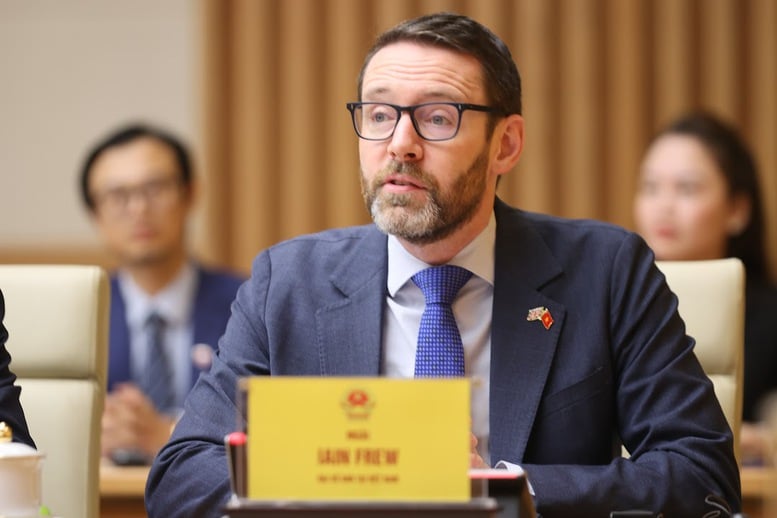
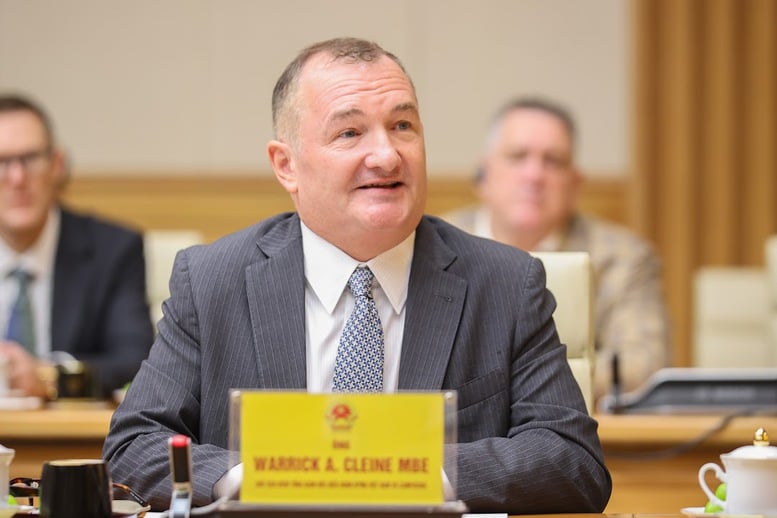
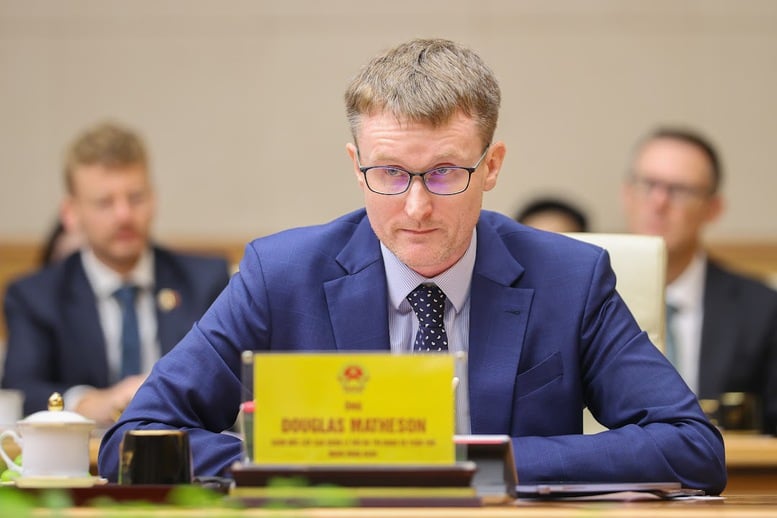
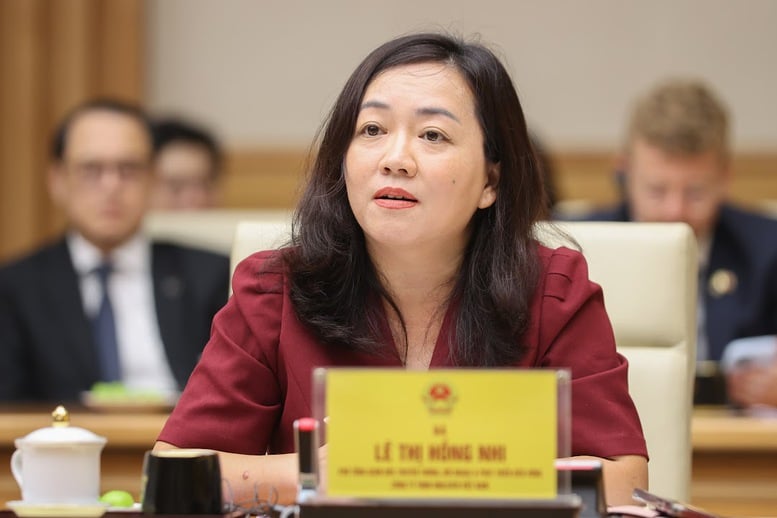
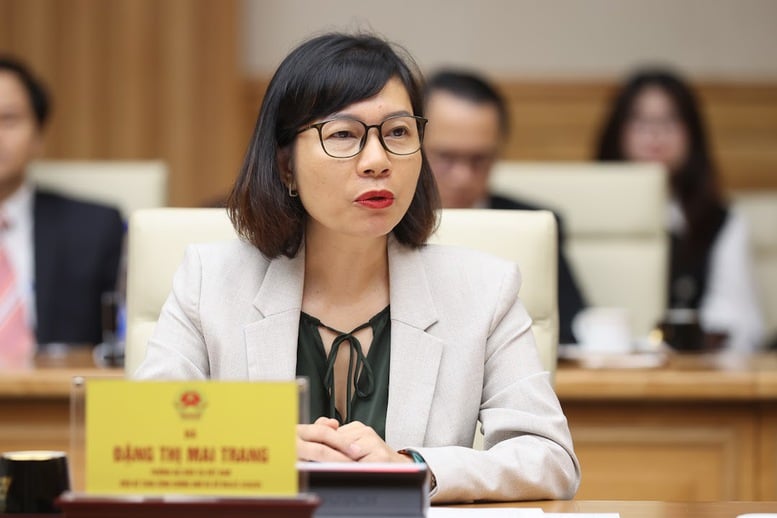
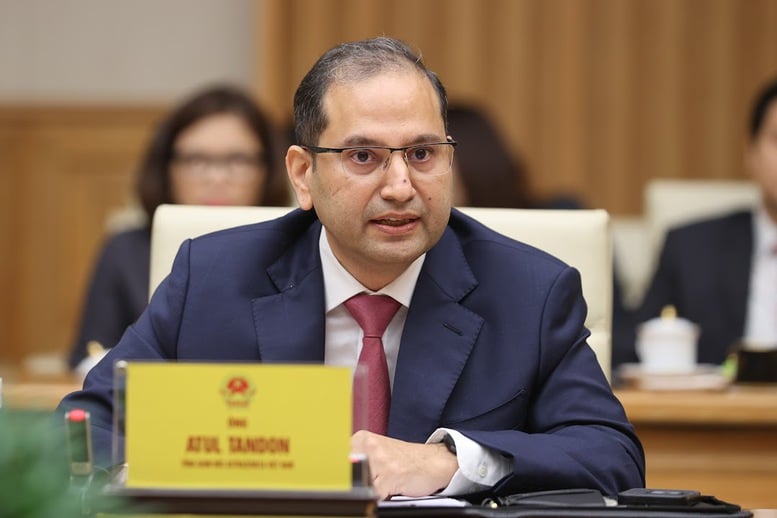
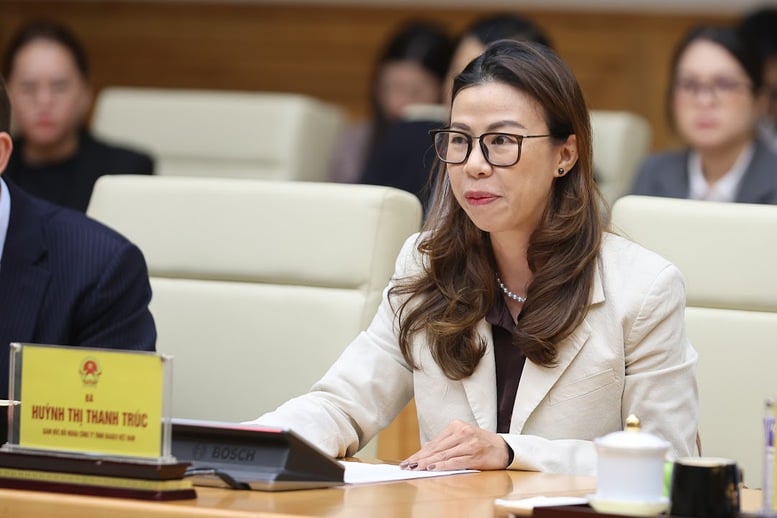
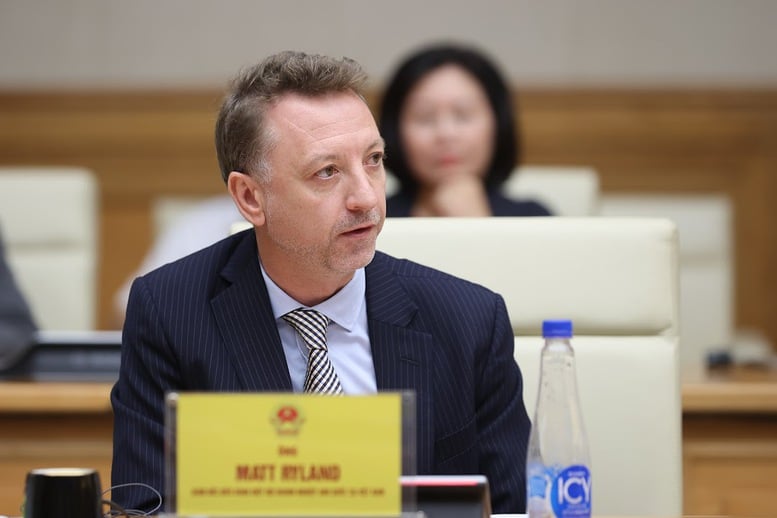
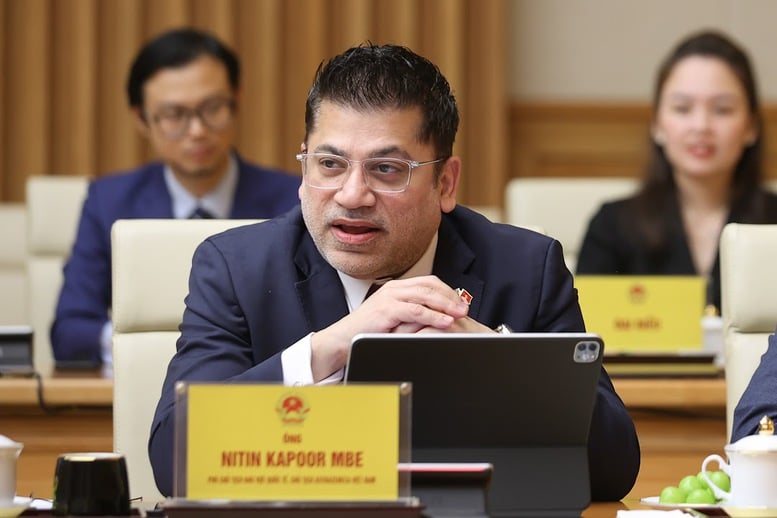
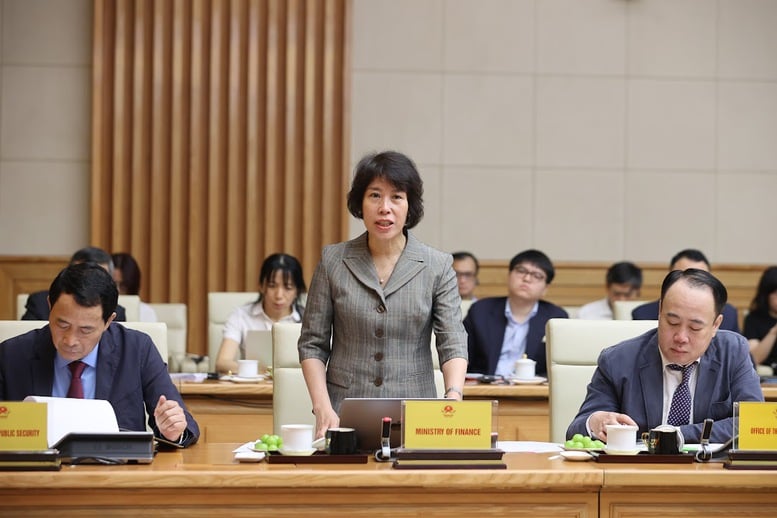

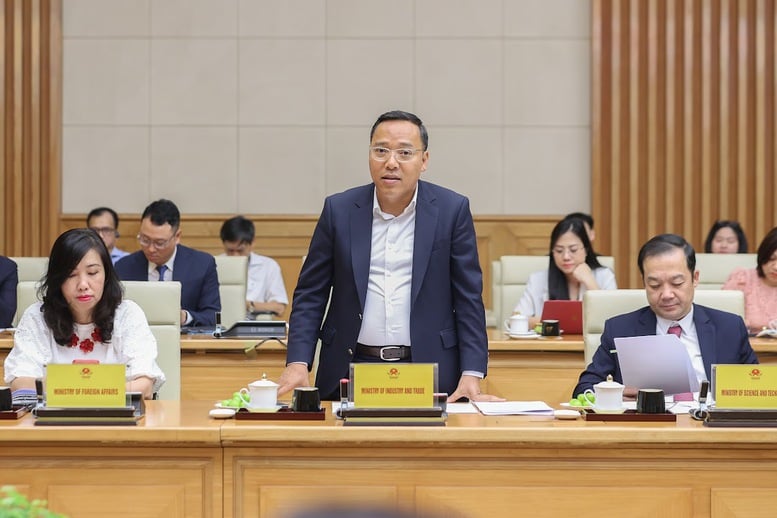
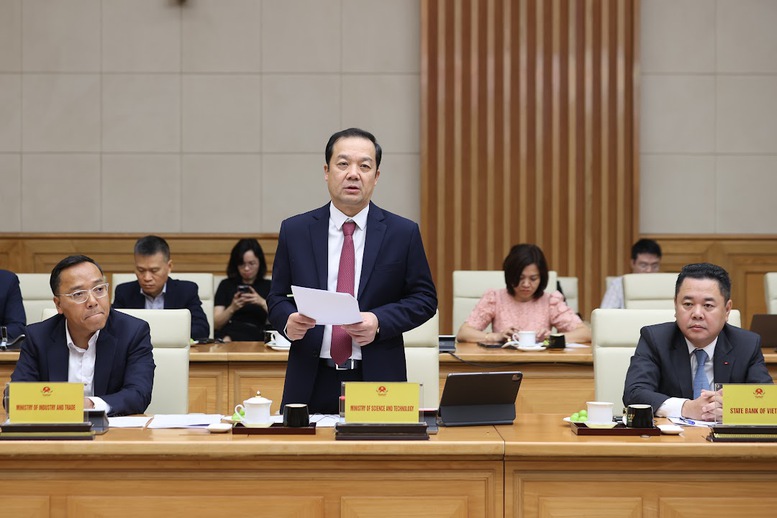
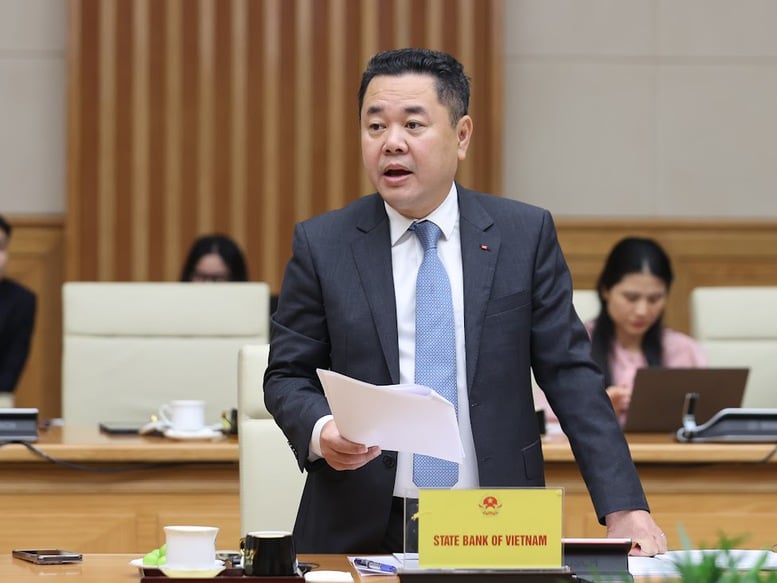
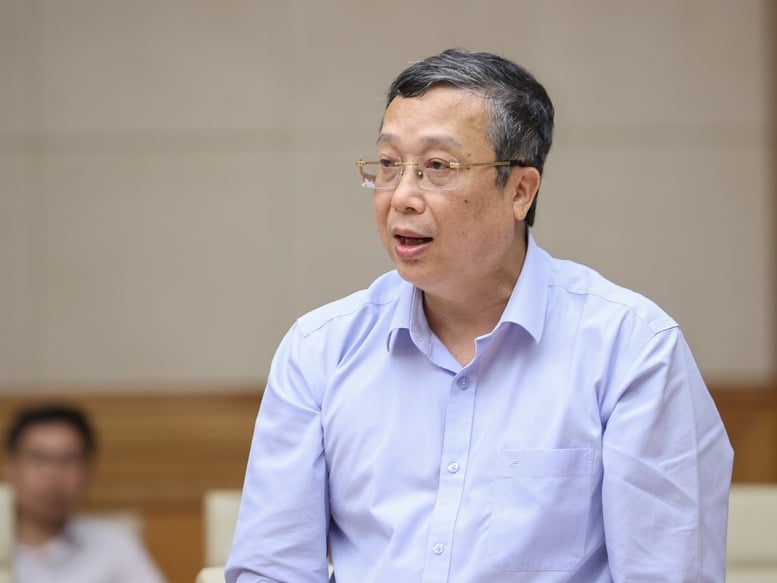
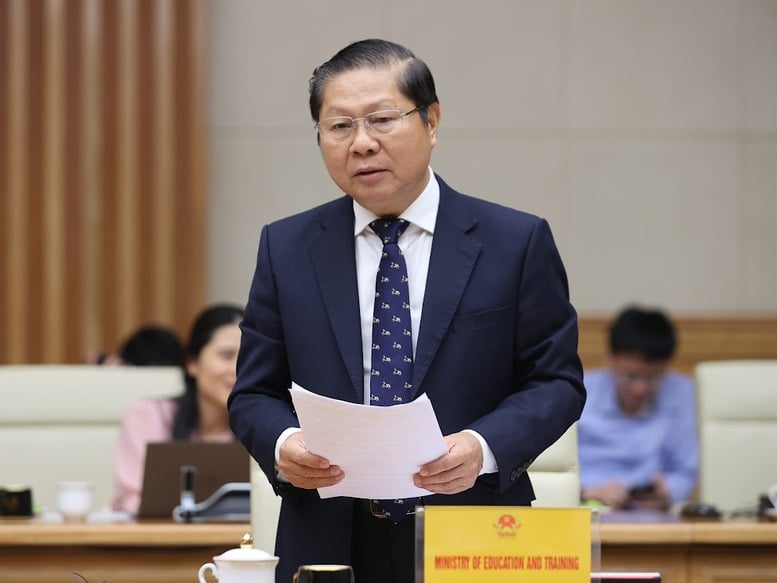
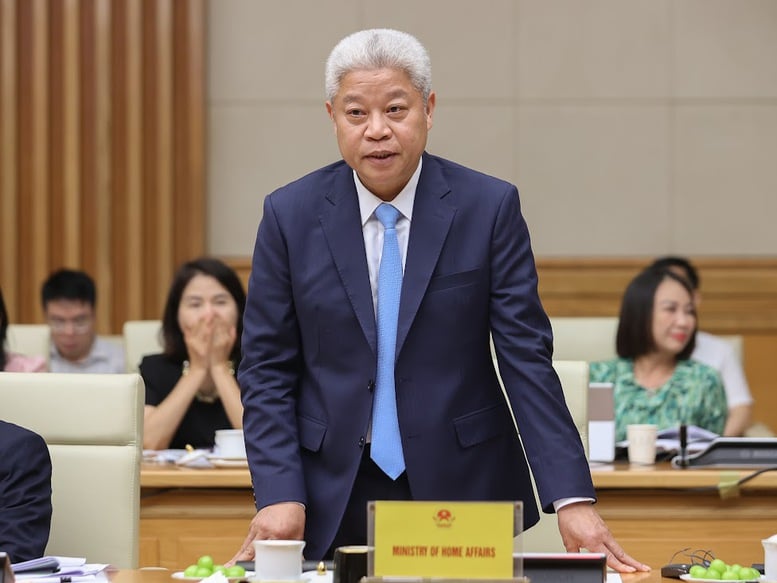
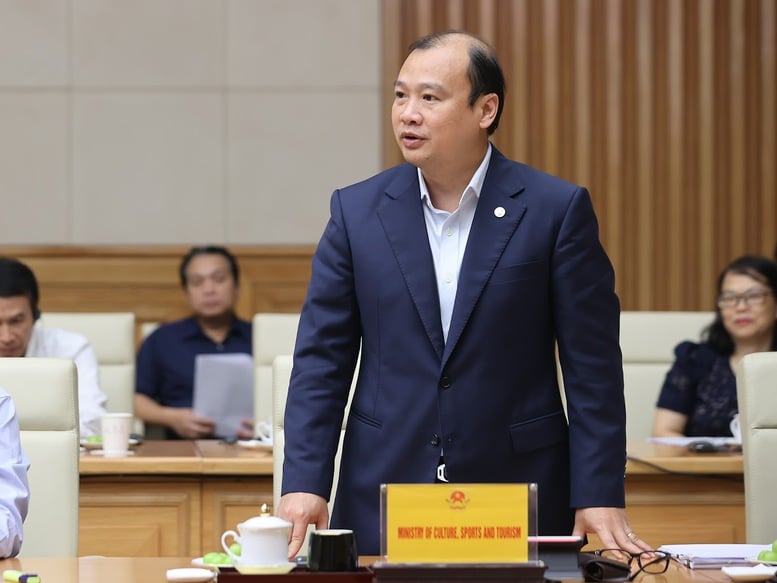
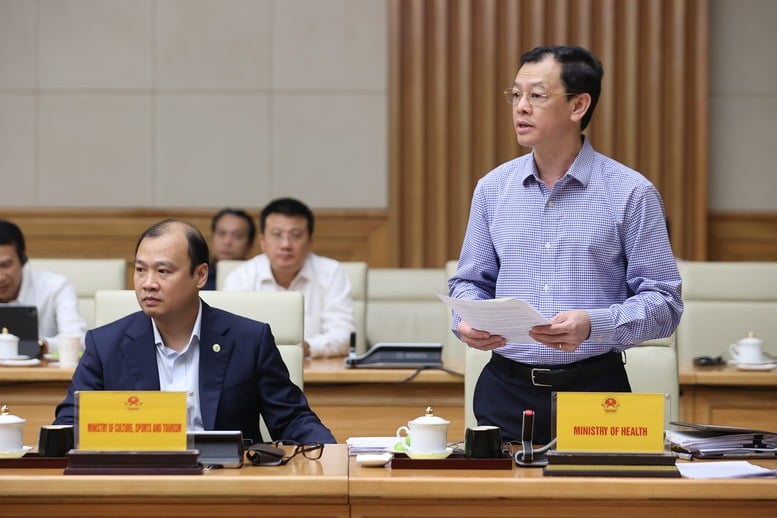
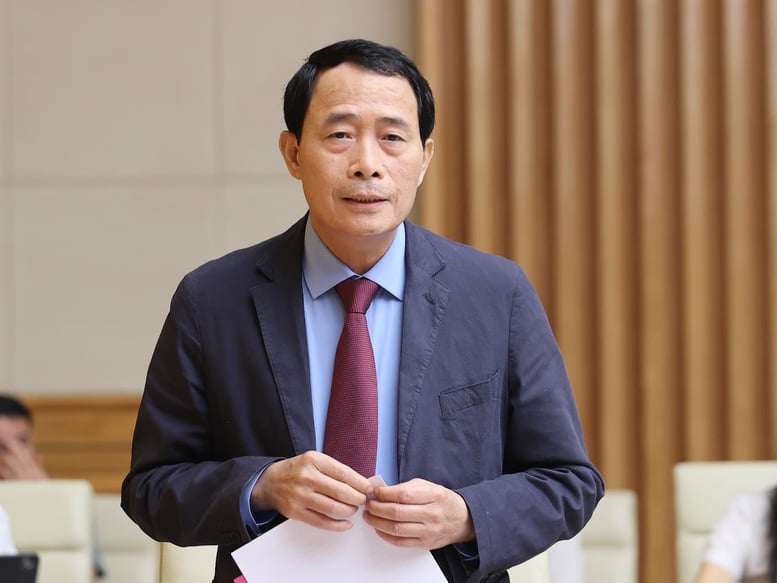
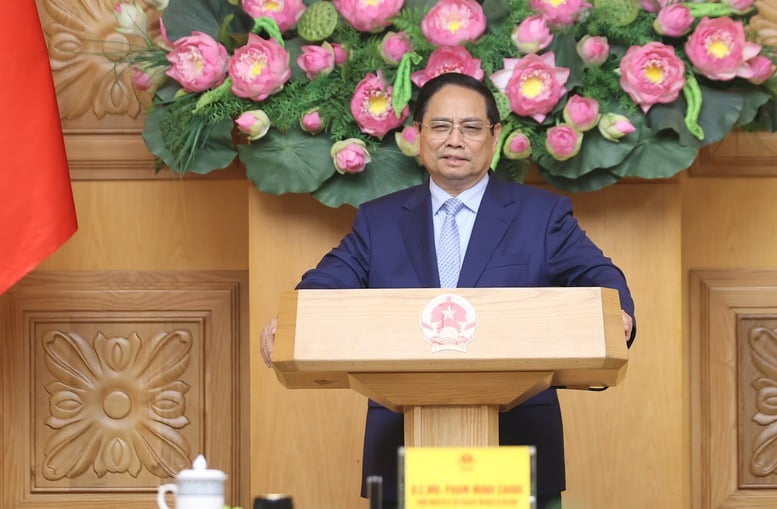
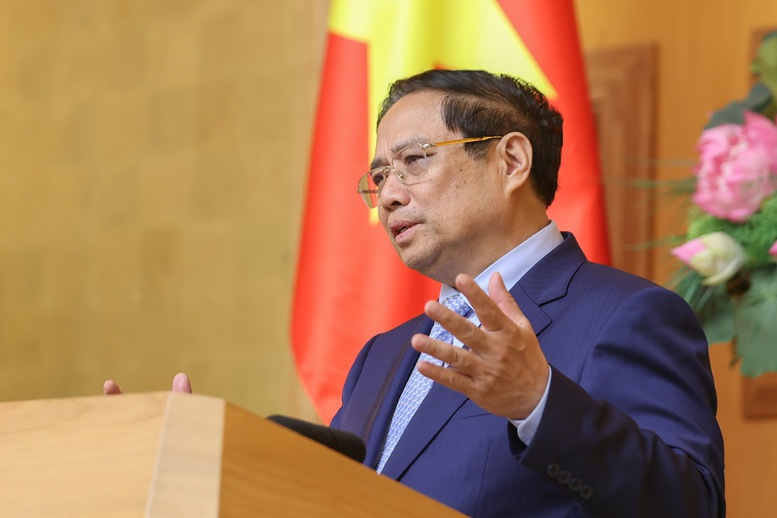
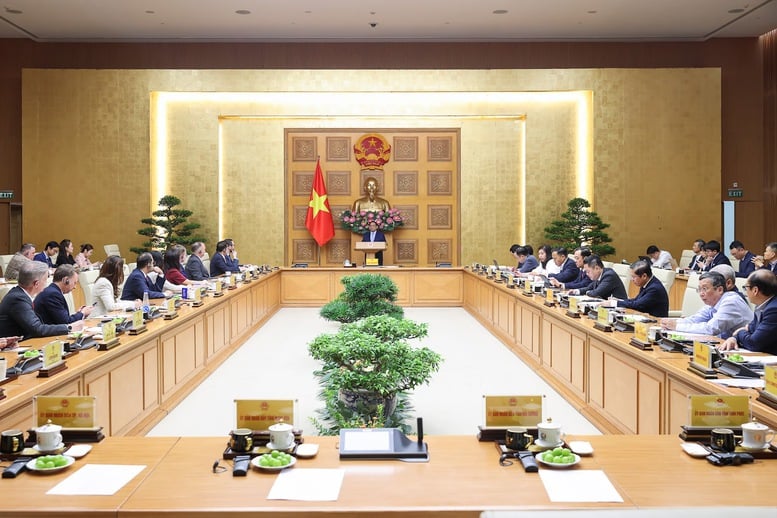
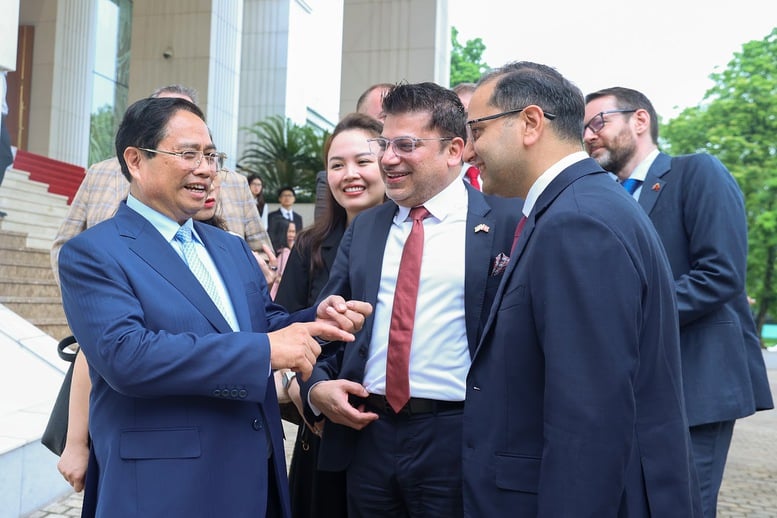












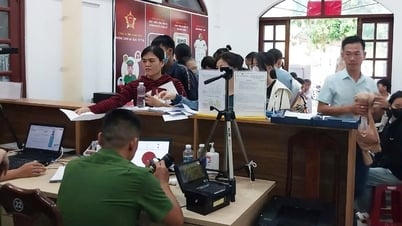




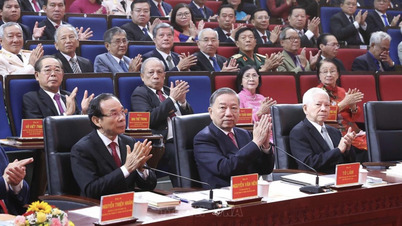



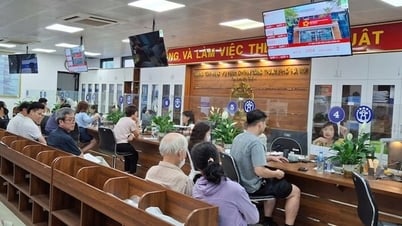



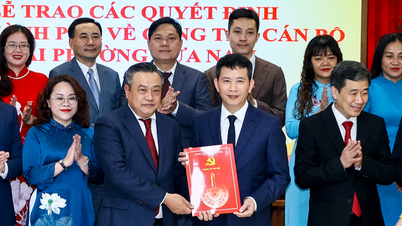





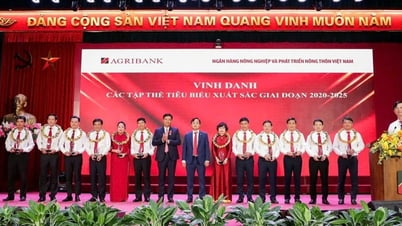


















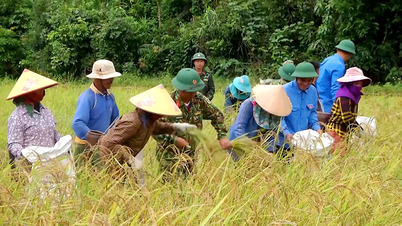




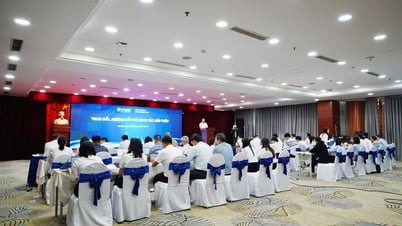

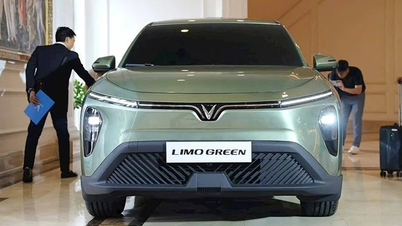


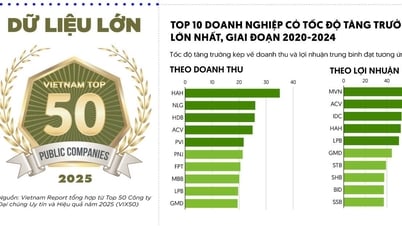







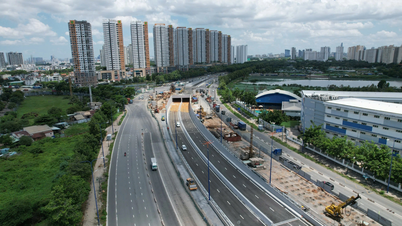
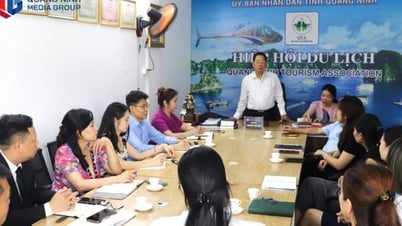

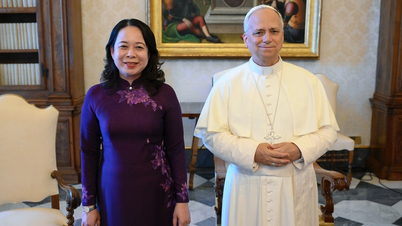


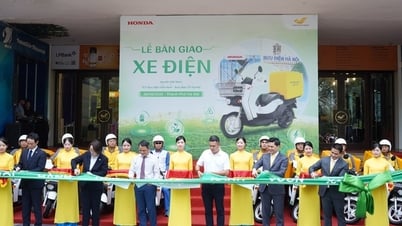


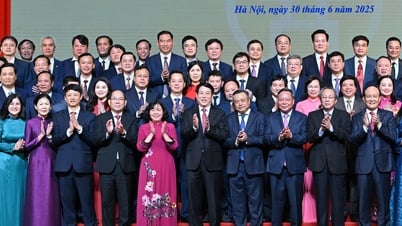
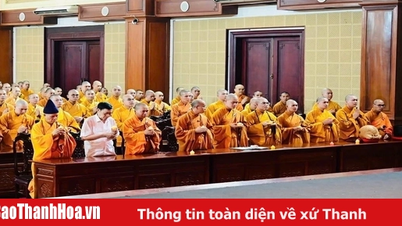
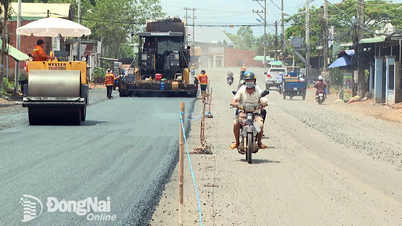

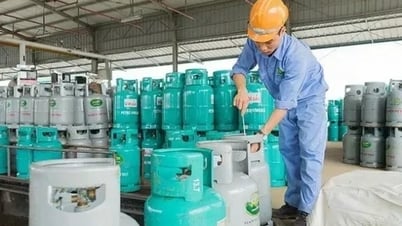



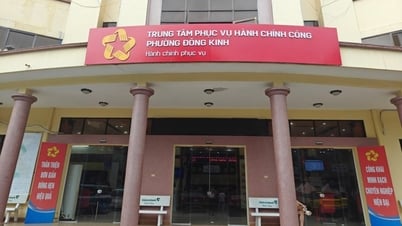

















Comment (0)